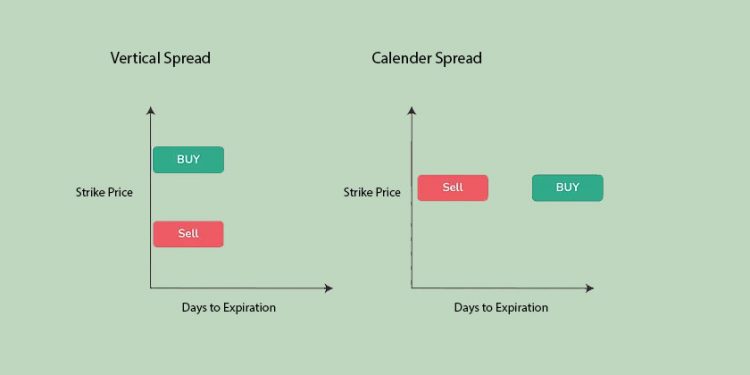Introduction
In the trading world, spread refers to the difference between the bid or buying price and the ask or selling price. By understanding what is spread, you can evaluate the overall cost or profit for any trade. Read on to understand more about spread, its types, and applications
Topics Covered
- Understanding Spread Trading
- Types of Spread Trading
- How is it calculated?
- Factors that Affect Spread Trading
- Applications of Spread Trade
- The Benefits of spread trading
- Risk Management
- Investment Decisions
- Limitations of Spread Trade
- Conclusion
Understanding Spread Trading
In trading, when you sell a financial instrument, you pay a higher price, also known as a bid. On the other hand, you receive a lower price while selling a financial instrument, known as ask. Spread is nothing but the difference between the buying and selling prices. The basic concept of spread revolves around the buying and selling price of a financial instrument such as stock, commodity, or currency. By understanding spreads meaning, you can evaluate profits and make better investment decisions. When the spread is wider, traders will need a large price movement to make a profit.
Begin your investing journey today. Your Demat account is the first step.
Types of Spread Trading
Here are the types of spread in trading:
- Bid-Ask Spread
- Yield Spread
- Credit Spread
- Volatility Spread
What is Bid-Ask Spread
Bid-ask spread will determine the difference between the bid price (the highest price from a buyer) and the ask price (the lowest price accepted by a seller). It works according to the buying and selling price of securities and helps you evaluate the profit. Without knowing the bid-ask spread, you might fail to calculate the cost of an investment.
Yield Spread
The difference between the yields of two financial instruments is termed yield spread. It works based on the earnings generated by a financial instrument over time. After knowing the yield spread, investors can choose profitable bonds or fixed-income instruments. It also helps investors understand how much more yield they will receive after choosing one investment over another.
Credit Spread
It measures the difference between the yields of a debt instrument and a benchmark. For example, it can help measure the difference between the yields of a corporate bond and a government bond with the same maturity. It helps investors understand the credit risk associated with a bond or a debt instrument.
Volatility Spread
It helps in evaluating the difference between the implied volatilities of two securities. It is widely used to understand the future price movements of options contracts. Implied volatility is calculated based on forecasting reports, financial models, and price speculations. Implied volatility gives a clear understanding of the future price movements of an asset. With the help of volatility spread, investors can buy options contracts with low implied volatility.
Recommended Read:How to do the right type of trading in markets
How is it calculated?
Here’s how to calculate different spreads:
-
Calculation of Bid-Ask Spread :
Subtract the bid price from the asking price (Ask price – bid price)
-
Calculation of Yield Spread :
Subtract the yield of a bond or fixed-income instrument from that of another bond or fixed-income instrument (Yield of first bond – yield of second bond)
-
Calculation of Credit Spread :
Subtract the yield of a bond from that of a benchmark (yield of bond A – yield of a benchmark bond)
-
Calculation of Volatility Spread :
Subtract the implied volatility of an options contract from that of another (implied volatility of first options contract – implied volatility of second options contract)
Factors that Affect Spread Trading
Here are some factors affecting spread in trading:
-
Market Conditions :
When market conditions are good, there are more buyers and sellers, and spreads are narrow. However, spreads widen when market activity is low.
-
Liquidity :
When assets can be easily bought and sold due to high liquidity, spreads are narrow. On the other hand, spreads widen when liquidity is low.
-
Volatility :
When market fluctuations increase, spreads widen. On the other hand, spreads are narrow when market volatility is low.
-
Political Factors :
Elections, changes in policies, and political disputes can increase uncertainty in the market. When market uncertainty rises, spreads become wider.
-
Economic Factors :
Negative economic factors can lead to high market uncertainty. Spreads become wider when economic factors harm the market.
-
Creditworthiness :
When issuers with poor creditworthiness release debt securities, spreads are wide. On the other hand, spreads are narrow when issuers are creditworthy.
Applications of Spread Trade
- Based on the spreads of financial instruments, investors make trading strategies and decisions
- When spreads are wider, investors apply appropriate risk management strategies
- Investors tend to make more investments when spreads are narrower and fewer investments when they are wider
- With the help of yield and credit spreads, investors can indulge in credit analysis
- With the help of spreads, investors speculate the valuation of securities
The Benefits of spread trading
After understanding what is spread in trading, you must understand its significance. With the help of spreads, investors can know the profitability, future price, and cost of their investments. Here are some trading strategies that depend on spreads:
- Cost-efficient investments
- Investment decisions based on market liquidity
- Exit precision
- Increased profits
- Better risk management
- By knowing spreads, investors depend on arbitrage to benefit from small price fluctuations
- Investors indulge in pairs trading by taking long and short positions in the same market and selling them according to changes in the spread
- With the help of spreads, investors can indulge in price betting or speculations without owning the asset
Recommended Read:Introduction to derivatives trading strategies tips
Risk Management
Spread plays a crucial role in risk management for investors. With the help of spread, investors can understand liquidity, investment costs, future price, yield, and many other factors. Here’s how investments are managed based on spreads:
- When market liquidity is low, and spreads widen, investors refrain from buying securities in bulk
- When spreads are wide, traders do not invest due to increased transaction costs
- Investors can set stop loss with the help of insights generated by spreads
- You can analyse the risk-reward ratio with the help of spreads
There are numerous pros to using spreads for risk management, like increased accuracy, suitable trade timings, position sizing, and enhanced risk-adjusted profits.
Investment Decisions
With the help of spread, you can understand the relationship between risk and return for any particular instrument. Based on the risk-return profile, you can make better and more informed investment decisions. Relative value investing, pair trading, and many other investment strategies depend on spreads. Spreads are also used for deciding the right investment horizon. It is always better to exit an investment before the spread widens, thus gaining maximum profit. Here are some advantages of making investment decisions based on spreads:
- Enhanced risk detection and management
- Enhanced price discovery
- Increased profit
- Enhance portfolio management
Investment Decisions
Besides understanding spread meaning in finance, you must know its limitations, which are:
- For trading, the spread might not consider the hidden costs related to investments
- Since spreads are dynamic in nature, risk management reports might not be accurate
- Spreads only focus on a few factors that aren’t sufficient for making informed investment decisions
- Since market factors can alter spreads, credit analysis might not be accurate
- Spreads have a narrow focus and rely on historical data, which might not help with the accurate valuation of securities
Conclusion
Spreads can help investors understand the difference between the bid-ask and yields of financial instruments. With the help of spread, investors can indulge in price speculation, valuation, credit analysis, and more. You can rely on new-age trading platforms offered by Religare Broking to understand more about spreads. Start making investment decisions based on spreads now!






















